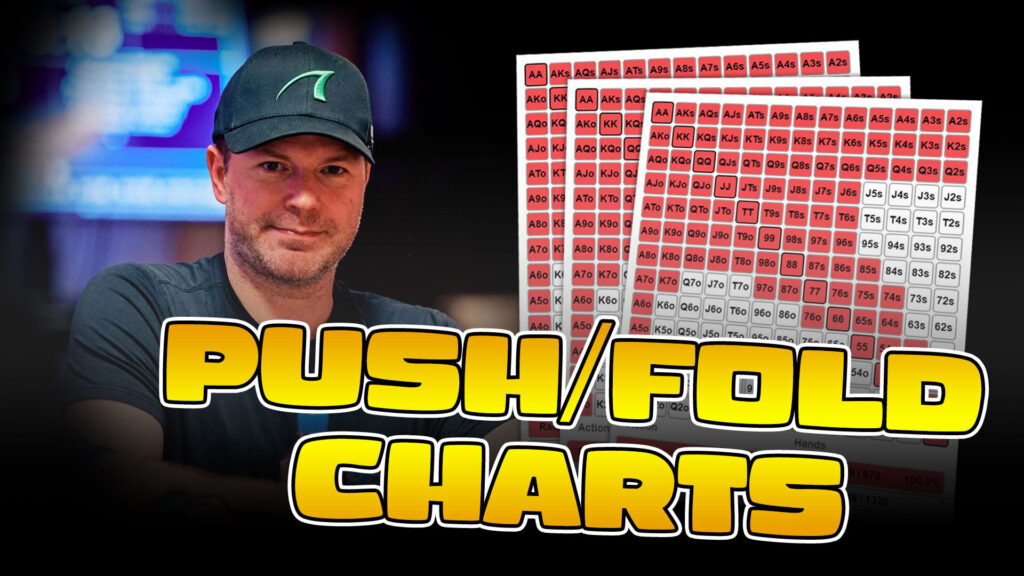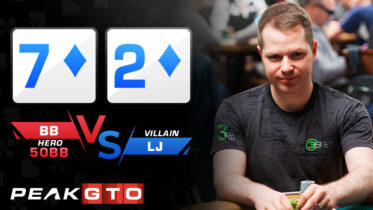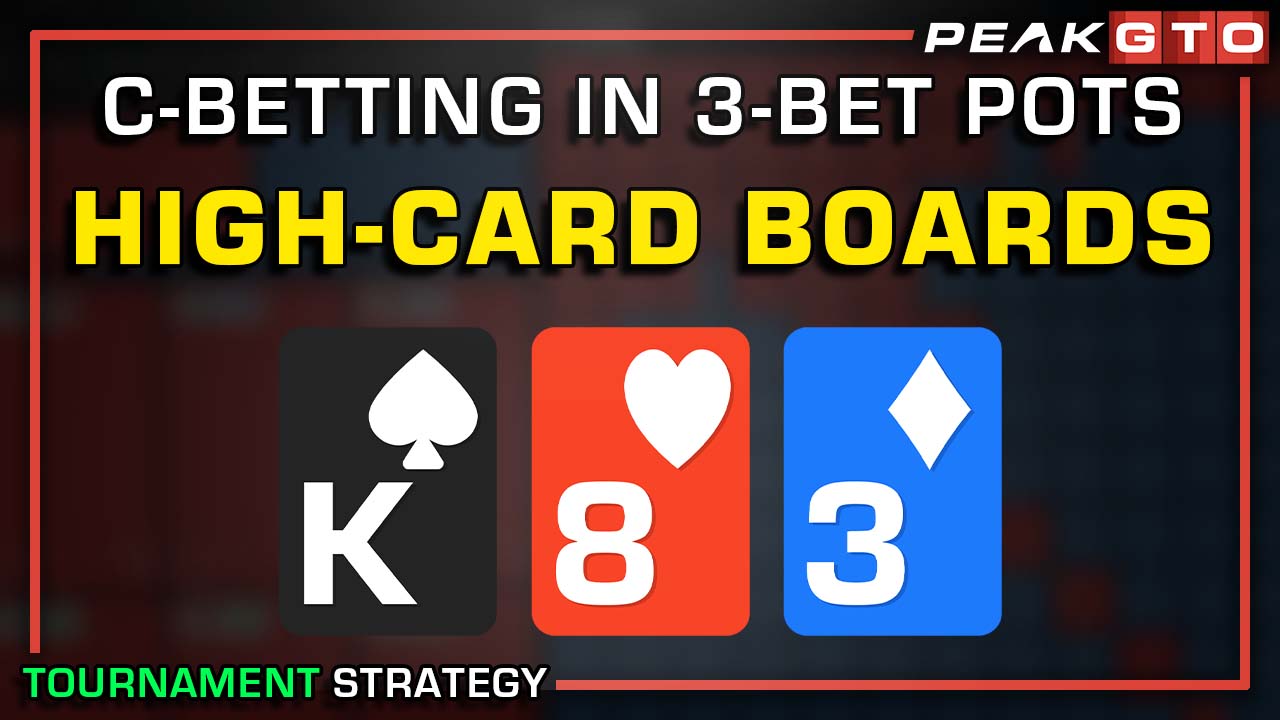Here’s an experiment to try: the next time you’re sitting in your regular no-limit hold’em game, count the number of 3-bets that you see in a one-hour period. If you’re in a $1/2, $2/3, or $2/5 game, I predict that number will be less than five. It might even be two.
For the second half of the experiment, go watch a bigger game – $5/10 or higher. In one orbit you’ll see the number of 3-bets you saw during an hour of your regular game. It’s as if the higher stakes players are in on a secret that nobody told the $2/3 community. In fact, they are in on such a secret: 3-bets crush preflop poker.
- Reason #1: 3-bets can win the poker hand immediately
- Reason #2: 3-bets get you the button and position at the poker table
- Reason #3: 3-bets limit the number of poker players in the hand
- Reason #4: 3-bets prevent squeezes from opposing poker players
- Reason #5: 3-bets make other cash game players miserable
- Conclusion: 3-betting is the high stakes secret that low-stakes players don’t know
Reason #1: 3-bets can win the poker hand immediately
Nobody folds when you call – it’s one of the rules of poker. By 3-betting, you give yourself a chance to win the pot immediately, which is almost always a great outcome. Sure, you’d like to get action when you have pocket aces, but you rarely get that hand. Far more often, you’d be delighted to win the original raise and the blinds uncontested.
Furthermore, ending the pot preflop means you completely or mostly evade the pot tax known as “rake”. If you play in a time-raked game, this isn’t a factor, but a huge majority of lower stakes games have a rake taken from every pot. Some poker rooms have a “no flop, no drop” policy, which means that if the pot ends before the flop, no rake is removed. Others take a dollar or two for promotions, but the serious money leaves the pot when the flop comes down. If there’s no flop, that money doesn’t leave the pot.
If you play in California, the pot tax is extremely high. That’s because California law prohibits a percentage rake being taken. Thus, the full rake amount (also known as a “drop”) is taken the moment the flop comes down. At my nearby casino, it’s $1 if there’s no flop, but $6 as soon as there’s a flop. Since casinos can’t use a percentage formula, that $6 applies to the $2/3 game as well as the $3/5 game. There is a compelling argument that, in California, you should never call a raise preflop, but either 3-bet or fold everything.

Make the best preflop decisions with Jonathan Little’s Push/Fold Charts!
Reason #2: 3-bets get you the button and position at the poker table
Consider this situation in a $1/2 game: UTG+1 opens for $8, and you call in the hijack seat. Now the button calls as well. Regardless of what happens after that, you’re in an awkward situation – you are stuck between the preflop raiser and the button. Unless/until the button exits the pot, you don’t get to act last.
Few poker players understand the overwhelming value of last action – the difference between having the effective button and not having it is night and day. My fellow PokerCoaching contributor and legendary poker author, Tommy Angelo, puts it this way:
“Acting last is like taking a drink of water. We don’t have to understand why it’s good for us to know that it is. And the benefits are unaffected by our understanding of them.“
So let’s take a big swig from the water bottle and rewrite the script…
UTG+1 opens to $8, and you 3-bet to $25. Now the button folds almost everything. UTG+1 calls and we’re off to see a flop. But for the rest of the hand, we get to act last. Man, that water tasted good.
Reason #3: 3-bets limit the number of poker players in the hand
Consider this hand in a $2/3 no-limit hold’em game: the UTG+1 player limps for $3. The lojack raises to $12. You are next to act in the hijack with A♣️J♣️. That’s a pretty hand, so you call. Now the cutoff calls, the small blind calls, the big blind calls, the cocktail server puts his $12 in, and the limper, to nobody’s astonishment, calls as well.
What a mess. You are seeing a 6-way flop (the dealer refunded the cocktail server’s $12), and even if you get an ace- or jack-high flop, you will have no idea of where you are in the hand. You will likely have to make two-pair or better to have even a lukewarm feeling about your chances of winning.
Let’s roll back the tape. UTG+1 limps for $3, lojack raises to $12. Now you make it $50. Suddenly cards are flying toward the muck. The limper, weirdly enough, decides that if their hand was good for $3, it’s good for $50, and calls. And the original raiser calls as well.
This is a dynamite outcome. Sure, it would have been great if everybody had folded to your 3-bet, but poker is rarely that easy. However, instead of a $72 pot with six players in it, you have a $150 pot with three players, you have the effective button (there’s that “last to act” thing again), and they will almost certainly check to you on the flop.
You have 60% fewer opponents, over twice as much money in the pot, and you’re acting last with an eminently playable hand. That 3-bet was wildly effective.
Reason #4: 3-bets prevent squeezes from opposing poker players
Here’s a hand in a $2/5 game. The UTG+2 player opens for $20, and gets called by the lojack. You are in the hijack and find 8♦️7♦️. You can make all kinds of straights and flushes with that hand, so you call. Now the button calls too, but as they do, the hairs on the back of your neck stand up.
That’s because the woman in the small blind – she’s waiting for her seat in the $5-10 game, and is not of a mind to see a flop 47 ways. She slides out $170. One by one, everybody folds back to you. Calling and 4-betting are both out of the question. You sadly toss your pretty suited connector into the muck, as does the button. The small blind has squeezed $85 out of the field, winning the pot without a flop.
Let’s try this again: UTG+2 opens for $20, and the lojack calls. Now you make it $80. The small blind insta-folds when it’s her turn, and goes back to her phone. The original opener calls, but the hijack folds. Now you have $185 in a heads-up pot, last action, and an uncapped range for the UTG+2 player to worry about – let’s play some cards.
That’s a much better result than your $20 sitting in the small blind’s stack.

Read one of the highest regarded articles on the PokerCoaching.com blog: The Bankroll Bible
Reason #5: 3-bets make other cash game players miserable
I saved the best one for last.
Let’s suppose you’re playing $2/5 no-limit hold’em. You are in the cutoff, and open A-10 offsuit to $20. Now the button makes it $65, and it folds back around to you.
How do you feel?
See?! You feel miserable, right? You don’t know if you should fold, call, or 4-bet bluff. What you really wanted was for the button to fold, or maybe call, but instead, you’re in an awkward predicament.
Well, if that’s how you feel when somebody 3-bets you, doesn’t it sound great to make your opponents feel that way?
Because low-stakes players rarely see 3-bets, they’re unnerved by them. They tend to go passive, and start playing very honest poker. They 4-bet only their absolute premium hands. Otherwise, they fold, or maybe call and try to “hit a flop.” But when they don’t hit the flop, they check and fold.
In fact, one of the few downsides of 3-betting is that it opens you up to getting 4-bet. But if your opponents don’t 4-bet enough (they don’t – I promise), then you can easily fold almost all of your hands when they do 4-bet. But more importantly, by not 4-betting you, they allow you to realize your equity by seeing the flop. Knowing that you’ll rarely face a 4-bet makes 3-betting that much more attractive.
Look, I hate getting 3-bet as much as anybody, particularly when the 3-bettor acts after me post-flop. It’s simply a tough situation all around, which means that by doing more 3-betting, you make your opponents miserable and put them in more tough situations.
That’s how you win at poker.
Conclusion: 3-betting is the high stakes secret that low-stakes players don’t know
Let’s review the benefits of 3-bets…
- 3-bets can win the poker hand immediately.
- They can get you the button and position.
- They limit the number of poker players in the hand.
- They prevent you from being squeezed.
- They make your cash game opponents miserable.
3-bets are literally the secret weapon that can put you well ahead of the field in almost any low-medium stakes game. Such re-raises will probably be uncomfortable at first – putting in a bunch of extra money with anything but an absolute premium hand will feel weird if you’re not accustomed to doing it. However, you’ll immediately see the benefits, and before you know it your 3-betting muscle will be fully limbered up and ready to use frequently.





Pingback: โคมไฟ
Pingback: รับจำนำรถ
Pingback: ศูนย์ดูแลผู้สูงอายุ
Pingback: Living Trust Attorneys Sierra Vista AZ
Pingback: LAPAROSCOPIC WEIGHT LOSS PROCEDURES
Pingback: OligioX ทำที่ไหนดี
Pingback: BETFLIX
Pingback: lawyer
Pingback: ais fiber
Pingback: sexy168
Pingback: รับจด อย
Pingback: heated tobacco product return policy
Pingback: Executive Search
Pingback: Here
Pingback: เว็บพนันออนไลน์เกาหลี
Pingback: ซื้อเหล้าออนไลน์
Pingback: โบลเวอร์ kruger
Pingback: mawinbet
Pingback: VG98
Pingback: ปั้มไลค์
Pingback: EberhardWebApps.com
Pingback: toybf
Pingback: tìm hiểu thêm
Pingback: เว็บปั้มไลค์
Pingback: Burnley FC
Pingback: QKA Wine
Pingback: z16
Pingback: ข่าวแมนยู วันนี้
Pingback: kênh YouTube QKAWine chuyên rượu vang nháºp khẩu
Pingback: เว็บสล็อต
Pingback: LSD ACID 200 Ug
Pingback: Thông tin vỠsinh bảo quản
Pingback: ชิปปิ้งสุวรรณภูมิ
Pingback: iqos iluma australia
Pingback: https://mellstroy-casino.reload.org.ua/
Pingback: เครื่องพิมพ์วันที่
Pingback: atom-vkhod.kazakhkuresi.kz
Pingback: หาแม่บ้าน
Pingback: UFABET
Pingback: Online Casinos
Pingback: SAGAME350
Pingback: เว็บ24
Pingback: ไซด์ไลน์